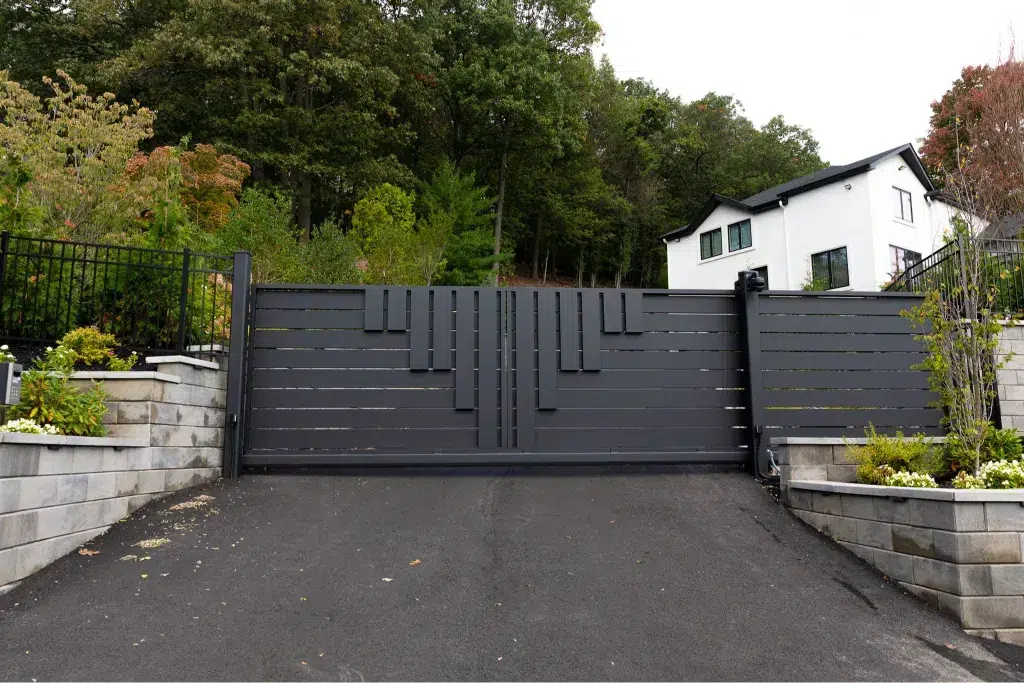When you’re looking to protect your property, choosing the right security gate makes all the difference. We’ve installed countless options over the years, and trust me, there’s more to consider than you might think. From heavy-duty steel barriers to sleek folding designs, each type serves a unique purpose. Let’s walk through your options together and find what works best for your specific needs.
Exploring Security Gate Options for Commercial and Industrial Use
Commercial properties need robust solutions that handle daily traffic without breaking down. We typically recommend automatic systems for businesses seeing constant vehicle flow. These barriers come in various materials – steel, aluminum, and even reinforced composites. The key is matching your security gate choice to your actual usage patterns. High-traffic warehouses benefit from heavy-duty sliding models, while office complexes might prefer aesthetically pleasing swing designs. Consider your daily operations first, then pick accordingly. Budget matters too, but remember that cheaper options often cost more in repairs down the line. Professional installation ensures everything works smoothly from day one.
Expanding Perimeter Security with Heavy-Duty Steel Gates
Steel barriers provide the ultimate protection for high-risk areas. We’ve seen these withstand everything from attempted break-ins to accidental vehicle impacts. The thickness matters – go for at least 14-gauge steel for serious protection. Every security gate installation requires proper foundation work, especially for motorized versions. Don’t skimp on the posts either; they’re carrying significant weight. Regular maintenance keeps them operating smoothly for decades. Yes, they cost more upfront, but the peace of mind is worth every penny. We always tell clients to think long-term when investing in steel options.
Folding Security Gates for Storefronts and Crowd Control
Folding designs offer flexibility that fixed barriers simply can’t match. Retail stores love these because they’re visible deterrents when closed. Plus, they fold away neatly during business hours. Here’s what makes them special:
- Quick deployment in emergency situations
- Minimal storage space required
- Easy one-person operation
- Customizable widths for any opening
We’ve installed these everywhere from mall storefronts to event venues. The accordion-style mechanism works great for crowd control too. Just remember to choose powder-coated finishes for outdoor use. Your security gate should match your business aesthetic while providing protection.
Installing Security Gate Solutions for Driveways and Pedestrian Access
Residential installations require careful planning to balance protection with convenience. Your driveway entrance sets the tone for your entire property. We always recommend automatic openers for main vehicle entrances – nobody wants to hop out in the rain. Pedestrian access points need separate consideration though. Side entrances work best with magnetic locks or keypad systems. Installation depth depends on your soil type and local frost lines. Professional installation ensures proper alignment and smooth operation for years. The right security gate becomes part of your daily routine without being a hassle.
Slide Gates vs. Swing Gates: Which to Choose
This decision usually comes down to available space and budget. Sliding models work perfectly when you’re tight on room. They run parallel to your fence line, saving precious driveway space. Swing designs need clearance but cost less to install. They’re also easier to operate manually during power outages. Consider snow buildup if you’re in colder climates – sliding types handle winter better. Motor requirements differ too; sliding versions need stronger operators due to their weight distribution. Each security gate type has distinct advantages depending on your property layout.
Why Security Gates Provide Privacy and Protection for Your Property
Beyond the obvious protective benefits, these barriers offer surprising privacy advantages. Solid panels block prying eyes completely, while decorative designs still limit visibility. They establish clear boundaries that discourage casual trespassing. Insurance companies often reduce premiums when you install quality systems. Property values typically increase too – buyers appreciate established perimeter protection. Most importantly, they provide that intangible sense of safety that lets you truly relax at home. Your investment pays dividends in both comfort and value over time.

FAQ
How much does a typical security gate installation cost?
Prices vary widely based on materials and automation. Basic manual swing models start around $1,500 installed. Automated sliding versions run $3,000-$8,000 for residential use. Commercial installations often exceed $10,000. Remember to factor in electrical work, concrete footings, and permits. Get multiple quotes and compare warranties. Quality installations last 20+ years, making the per-year cost quite reasonable for most budgets.
Can I install a security gate myself or should I hire professionals?
While handy homeowners can install basic manual models, we strongly recommend professional installation for automated systems. Electrical connections, proper alignment, and safety sensors require expertise. DIY mistakes often void warranties and create safety hazards. Pros handle permits, ensure code compliance, and guarantee their work. The extra cost saves headaches later. Simple pedestrian barriers might be DIY-friendly, but vehicle entrances need professionals.
How often do security gates need maintenance and what's involved?
Most systems need quarterly check-ups – lubricating hinges, checking sensors, and testing safety features. Annual professional servicing catches problems early. Clean tracks monthly for sliding models. Winter climates require more attention due to salt and moisture. Automatic operators typically need servicing every 2-3 years. Budget around $200-$400 yearly for maintenance. Well-maintained barriers last decades, while neglected ones fail within 5-7 years. Prevention beats repairs.
